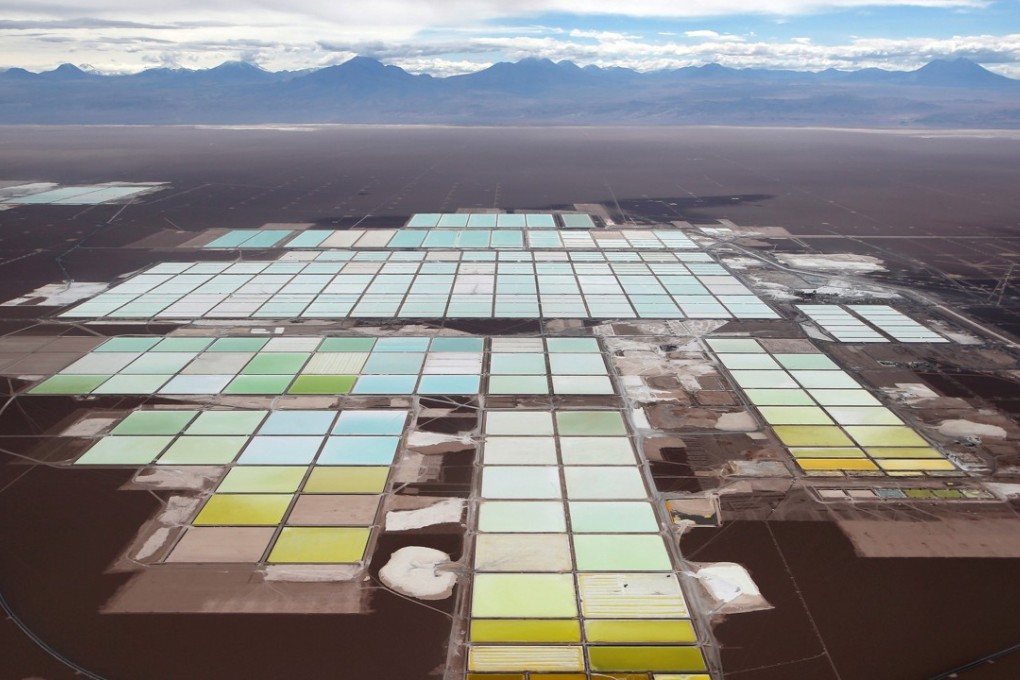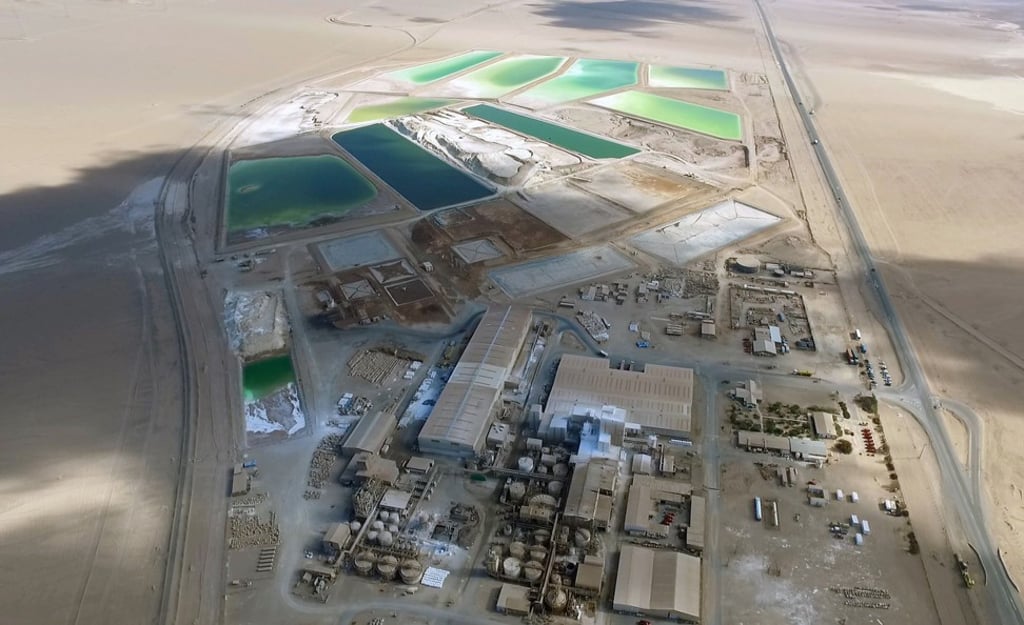Sichuan firm is poised for 46 per cent grip on world’s battery metal with US$4.1 billion Chile purchase

Tianqi Lithium Corp, a company based in the Sichuan provincial capital of Chengdu, is poised to become the world's largest producer of the metal, as it looks to wrap up its US$4.1 billion takeover of Chile's Sociedad Quimica y Minera (SQM).
The producer could gain substantial influence over almost half of the world’s lithium, as demand has surged for the silvery white alkali metal, a vital component of rechargeable batteries, analysts said.
“[Tianqi] will become a true global lithium resource industry leader,” wrote GF Securities analyst Huang Liheng in a report over the weekend.
Tianqi will control the equivalent of 46 per cent of the world’s 2017 ore output, through the combination of its 51 per cent stake in Greenbushes lithium mine in Western Australia, and its interest in SQM’s project in the Atacama Desert in Chile, according to Huang’s calculation.
The SQM investment will elevate Tianqi to become the second-largest shareholder of SQM with 25.9 per cent, just behind the dominant owner’s 29.97 per cent. Nutrien of Canada, which sold Tianqi its stake, has another 8.2 per cent to dispose of.
